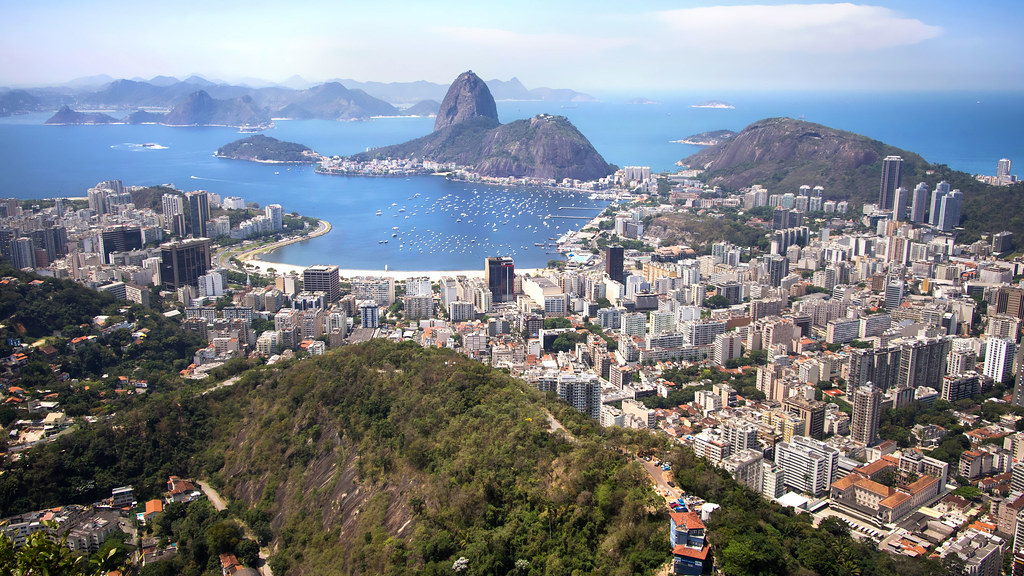Cities across the world have become increasingly competitive with one another as they've become more integrated through the global flows of money, people and organisations. This has led to a struggle between post-industrial cities for the various resources they might use to sustain themselves, thrive or decline.
When mega events take place, like the Rio 2016 Olympic and Paralympic Games, it is easy to overlook the long-term political, economic and cultural impacts on the host city.
Preparing a city for mega events
The Rio 2016 Olympic and Paralympic Games were announced in October 2009. Although this gives the country several years to prepare for the Games, it actually represents the start of an ambitious 20-year redevelopment project for Rio de Janeiro.
Dr Bryan Clift is a researcher interested in the contextual analysis of physical culture (a critical social and cultural approach to various forms of physical movement, such as sport and physical activity), in particular, the effects this can have on cities.
‘The Olympic Games have increasingly featured in this process of symbolically rebranding, reimagining and commodifying the city,' says Bryan.
There are three main audiences that a host city will be trying to please: external viewers and potential tourists, internal citizens, and the International Olympic Committee (IOC).
‘We often see new transport infrastructure undertaken in host cities, benefiting internal citizens,’ comments Bryan. Brazil is a good example of this as it is considerably updating its roads, metro and airports with investment in other specific environmental and business projects around the city.
‘There are also improvements to tourism, with travel infrastructure and redevelopment of tourist areas like the beaches.’
What happens after the Games
Many people studying this area consider the Barcelona 1992 Olympic Games to be a prominent example of how the Games can regenerate cities.
‘The Olympic Games were such a success for Barcelona because the delivery team focused on aspects that would impact people's lives. They looked into creating public spaces that people would want to use and developed iconic buildings that made an impact.’
The IOC considers there to be five intended legacies associated with the Olympic Games - sporting, social, environmental, urban and economic.
‘We’ve already seen significant changes in Rio de Janeiro. These include improvements to transportation, healthcare, security, the preservation of the urban forest and increases in sports funding,’ says Bryan.
Through his research, Bryan feels that political discussions and leadership also feature heavily as part of the Olympic legacy.
‘We saw in the London 2012 Olympic Games, Boris Johnson was remarked as one of the most significant political winners and benefited from the successes, despite not being involved in the bid process. This has a big impact on the legacy of the Olympic Games.’
Although there are plenty of positive aspects to the hosting of the Games, there have been several contentious aspects to the Rio 2016 Olympic Games so far. ‘We’ve already seen some controversy around the event with forced evictions and promises that have not been met.
‘We anticipate that following the Rio 2016 Olympic and Paralympic Games, the Brazilian economy is likely to struggle. The knock-on of this may result in a change in government as the country has adapted to significant change in a relatively short time frame.’
Building international links
Bryan was recently invited to speak at the Conference on Sports Science and Olympic and Paralympic Legacy at the Federal University of Minas Gerais in Brazil. The conference was attended by a number of researchers and international speakers, including British Consul General, Jonathan Dunn.
He is hosting a conference in July at Bath that will examine the shifting urban, political, economic, social and cultural terrain of Rio de Janeiro.
Bryan is also looking to develop a research project to explore urban redevelopment of park spaces and the longer term impact of the Olympic Games with Professor Thiago Allis from the University of Sao Paulo.
